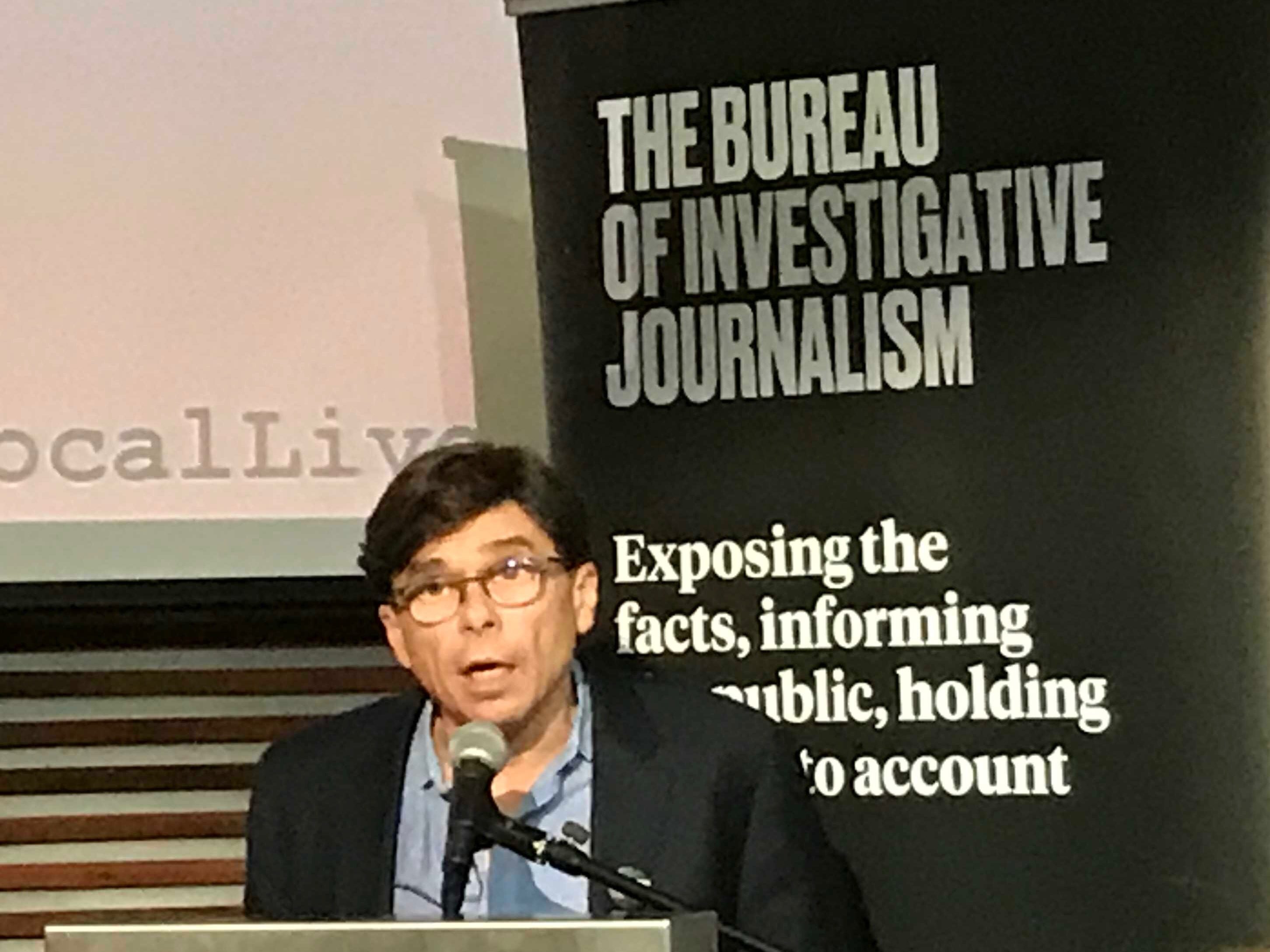
Pulitzer Prize-winning journalist Mike Rezendes, part of the Boston Globe’s Spotlight team that was immortalised in the Oscar-winning film of the same name, has said investigative news stories are driving subscriptions.
Rezendes, who was played by actor Mark Ruffalo in the 2015 film, said the focus, amid declining print sales, was now on digital and that online metrics showed a clear appetite for investigative reporting among readers.
He said: “Subscription revenue is more important than ever before. We can see for a verifiable, measurable fact that people are subscribing to the Boston Globe because of Spotlight stories.”
Speaking at the Bureau of Investigative Journalism’s Local News Matters event yesterday, Rezendes said Spotlight stories were “pretty much guaranteed” to be the most read story on the Globe’s website for some days once published.
As such, he said he believed investigative reporting is a way that newspapers can still make money.
He said he had been “terrified” at the arrival of online metrics technology, saying: “I suddenly thought: ‘Oh my God, who out there is reading a 5,000-word Spotlight story? Maybe no-one, in which case I’m cooked and probably looking for a job. This could be terrible.’
“But I have to say, I was surprised and delighted to find out that the opposite was true.
“So that’s tremendously gratifying and I think the same thing is true for many national papers – for organisations that are delivering investigative reporting, the same principle holds.”
Rezendes said the Spotlight team’s investigation into systemic child abuse in the Catholic Church in Boston, which is chronicled in the movie, cost the paper about $1m in total – including legal fees to expose documents.
But he said he believed readers would be willing to pay for expensive investigative journalism if shown the process.
“I think people want this kind of reporting, I really do,” he said. “I don’t think we are delivering something that people don’t want, I don’t think we are trying to shove medicine down people’s throats.
“I think most people out there think newspapers should hold powerful people to account.”
Rezendes also said giving a voice to disenfranchised communities was the “raison d’être” of investigative reporting and that campaigning “is what local journalism is about”.
He said: “This is why we do investigative reporting: To make change, to make our communities better, to bring social justice to people who haven’t had any, to give a voice to folks in disenfranchised communities.
“To me, to make a measurable impact is exactly what it’s all about. What can we do to change things for the better? That, for me, is the point of investigative reporting.”
He also shared concerns about the collapse in revenue models for local newspapers in the US and UK that has led to newsroom cuts and reductions in the numbers of investigative reporters.
“Local newspapers aren’t able to hold their public officials, their business leaders, their religious leaders to account and therefore democracy is threatened,” he said.
Rezendes also shared his criteria for choosing an investigative project. He said: “Is the story going to have impact? Can you make change with this story? Can you make the world a better place with this story?
“I try to evaluate whether what I am getting on the phone or on email is just one person’s story or whether it’s systemic in nature.
“It does me no good and it does the world no good to write a story unless it affects a large number of people.
“Can we get documents, are there people in positions of authority who are willing to speak on the record, not on background? Is there data, is there the material for us to assemble our own database?
“So I go through this pretty short checklist but if it doesn’t meet all the criteria I decide it’s probably not a story for me and it isn’t a story for Spotlight.”
Email pged@pressgazette.co.uk to point out mistakes, provide story tips or send in a letter for publication on our "Letters Page" blog
